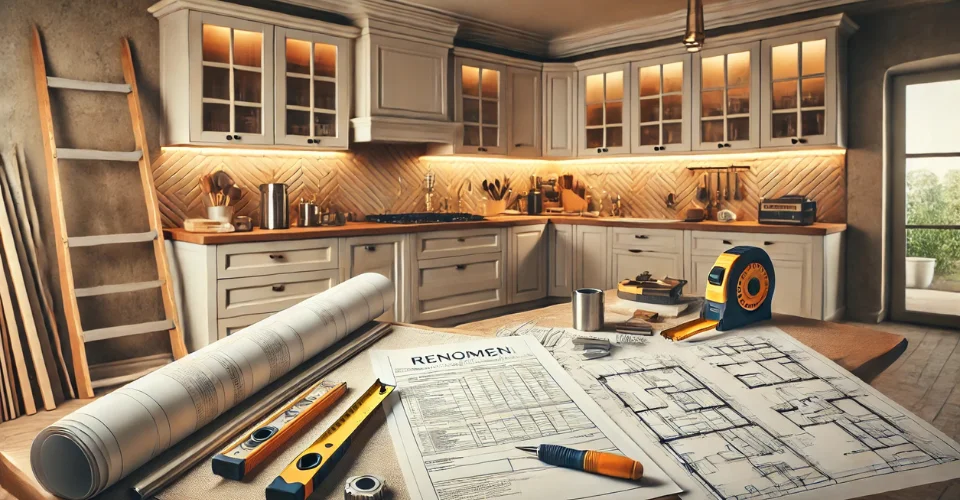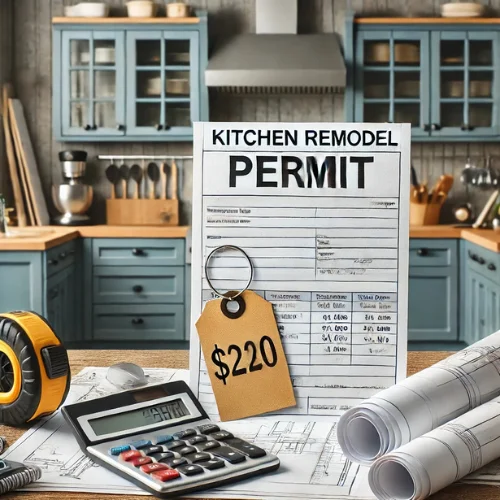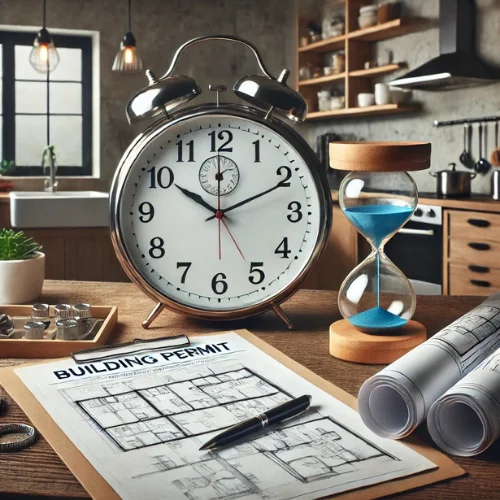Do You Need a Permit to Remodel a Kitchen?

Remodeling a kitchen is an exciting project. It can increase your home’s value and improve functionality. However, before starting, it’s crucial to know whether you need a permit. Permits ensure safety and compliance with building codes. Without them, you may face fines or difficulties when selling your home.
What is a Building Permit?

A building permit is an official approval from local authorities. It allows homeowners or contractors to proceed with construction or renovation. The goal is to ensure the work meets safety standards and zoning laws.
Why Do Permits Matter?
- Ensures Safety: Prevents hazards like gas leaks or electrical failures.
- Legal Compliance: Follows city or county codes.
- Protects Home Value: Unpermitted work can reduce resale value.
- Avoids Penalties: Fines or forced removal of unauthorized work.
When Do You Need a Permit for a Kitchen Remodel?

Permit requirements vary by location. However, some general rules apply.
Situations Requiring a Permit
- Structural Changes
- Removing or adding walls
- Expanding the kitchen footprint
- Changing door or window placement
- Electrical Work
- Installing new outlets
- Changing wiring
- Upgrading circuit breakers
- Plumbing Modifications
- Moving sinks or dishwashers
- Installing new water lines
- Changing drainage systems
- HVAC and Gas Line Adjustments
- Moving or adding gas appliances
- Installing a new ventilation system
Situations Where a Permit May Not Be Needed
Some minor upgrades don’t require a permit. These include:
- Replacing countertops
- Installing new cabinets
- Painting walls
- Updating light fixtures (if no new wiring is needed)
How to Get a Permit for a Kitchen Remodel

If your project requires a permit, follow these steps:
Step 1: Check Local Regulations
Each city or county has its own rules. Visit the local building department website or office to verify requirements.
Step 2: Prepare and Submit an Application
Most areas require:
- A completed permit application
- Detailed project plans
- Fees (cost varies by location and project size)
Step 3: Wait for Approval
The approval process can take a few days to weeks. Larger projects may require multiple approvals.
Step 4: Schedule Inspections
During and after the remodel, inspections ensure code compliance. Common inspections include:
- Rough Inspection: Before walls are closed
- Final Inspection: After project completion
Consequences of Not Getting a Permit

Skipping a permit may seem convenient, but it can cause serious issues.
Potential Risks
- Legal Fines: You may have to pay hefty fines.
- Project Delays: Authorities may halt your remodel.
- Safety Hazards: Unchecked work increases fire, gas, and electrical risks.
- Resale Problems: Buyers may demand proof of permits.
- Insurance Issues: Unpermitted work might void home insurance claims.
Cost of a Kitchen Remodel Permit

Permit costs depend on location and project complexity.
Estimated Costs
| Type of Work | Estimated Permit Cost |
|---|---|
| Electrical Changes | $50 – $300 |
| Plumbing Work | $100 – $500 |
| Structural Changes | $200 – $2,000 |
| Full Remodel | $500 – $5,000 |
Larger cities often charge more. Some areas also require impact fees.
How Long Does the Permit Process Take?

Timelines vary, but general estimates include:
- Simple Permits: 1-2 weeks
- Moderate Remodels: 2-4 weeks
- Major Renovations: 1-3 months
Delays can occur due to incomplete paperwork or required plan revisions.
DIY vs. Hiring a Contractor

If you hire a licensed contractor, they usually handle permits. If you’re doing it yourself, you must navigate the process alone.
Pros of Hiring a Contractor
- Handles permit applications
- Ensures compliance with building codes
- Faster approval and completion
Pros of DIY
- Saves money on labor
- Full control over the project
However, DIY remodeling requires knowledge of codes and inspections.
Frequently Asked Questions (FAQs)
1. What Happens If I Remodel Without a Permit?
You may face fines, forced removal of work, or problems selling your home.
2. Can I Apply for a Permit After Starting the Work?
Yes, but it may involve penalties. Some work may need to be redone to pass inspection.
3. Do I Need a Permit for a Small Kitchen Upgrade?
If you are only replacing cabinets or countertops, you likely don’t need one. But if plumbing or electrical changes are involved, you do.
4. How Do I Find Out My Local Permit Requirements?
Check your city or county’s building department website or call their office.
5. Can a Contractor Work Without a Permit?
No, licensed contractors must follow permit laws. If a contractor suggests skipping permits, consider it a red flag.
Conclusion
Whether you need a permit to remodel a kitchen depends on the scope of your project. Minor updates usually don’t require permits, but structural, electrical, plumbing, and gas modifications do. Skipping permits can lead to fines, safety risks, and future legal problems. Always check with your local building department before starting. If unsure, consulting a licensed contractor can save you time and stress. Proper planning and compliance ensure a smooth, successful remodel.



